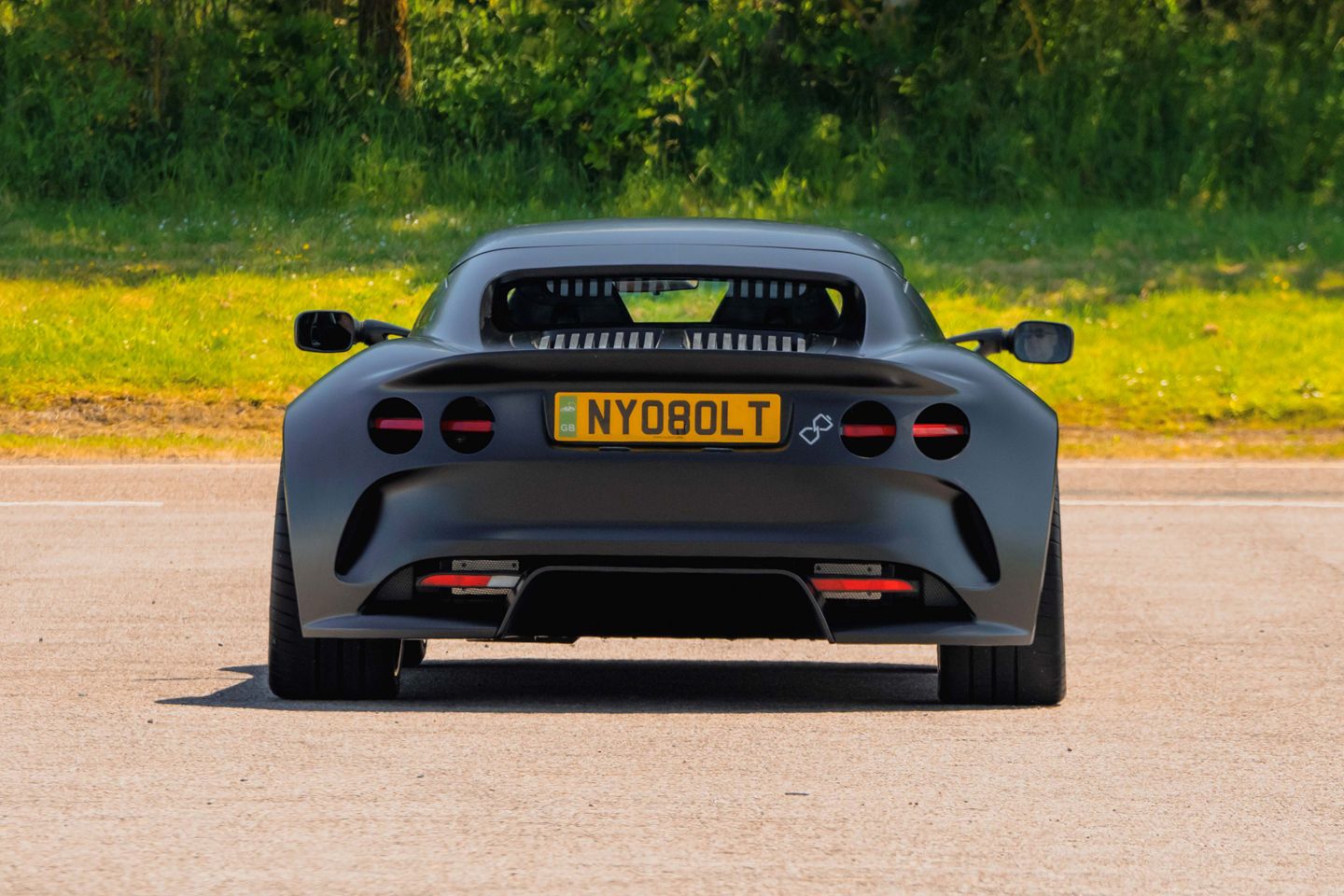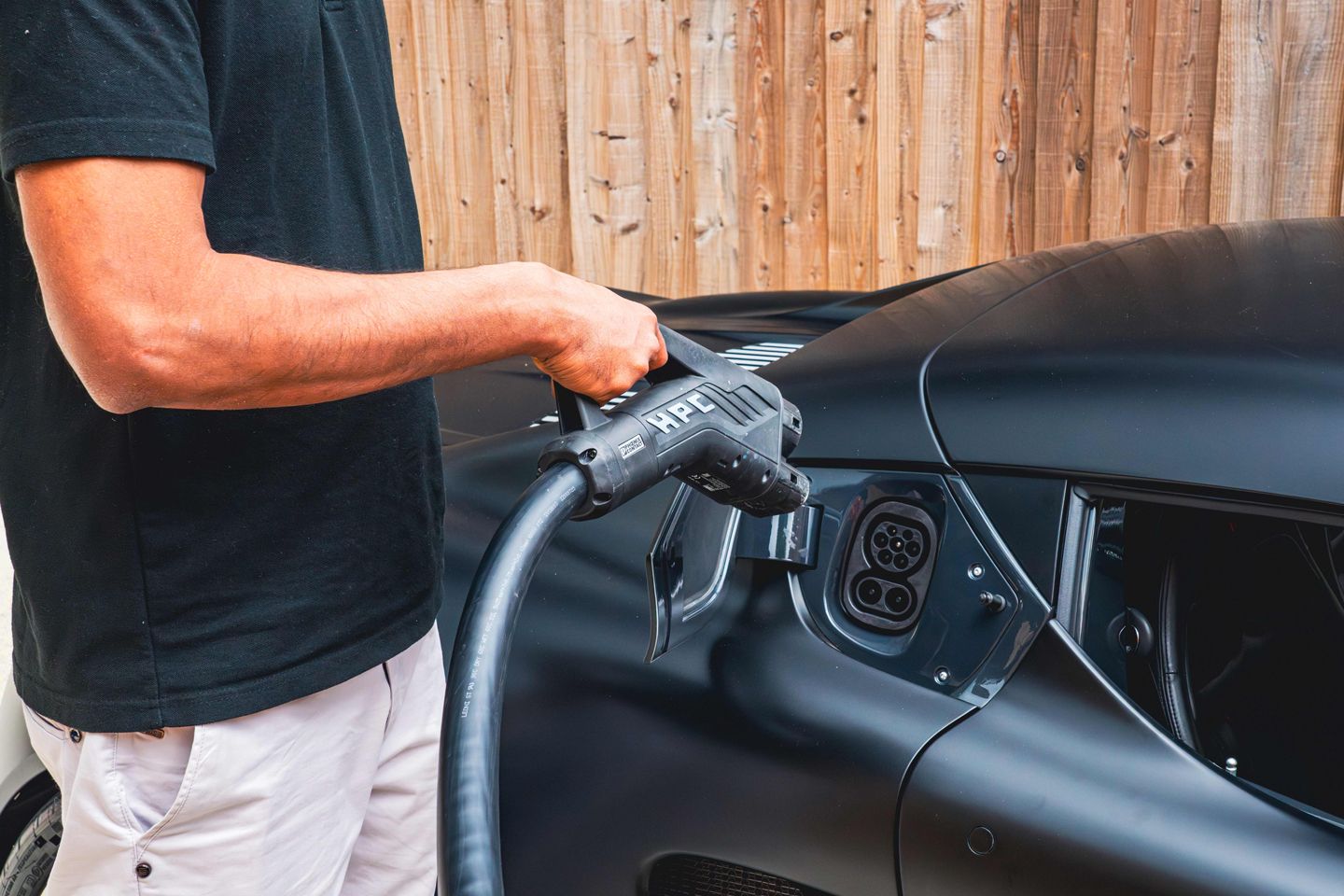Electrified son-of-Elise now testing on road
Nyobolt's working prototype weighs 1,250kg and charges to 80 per cent in under five minutes. What's not to like?

If Nyobolt’s EV prototype seems familiar that’s because we talked about it at length this time last year. (And because it’s a latter-day take on the Lotus Elise, designed by Julian Thomson himself.) The design allusion is obviously not accidental: what better way to make your novel battery technology seem revolutionary than putting it in a car that helped to rewire the way we think about lightweight sports cars? After all, it worked for Tesla.
Of course, in that case, the resulting Roadster was famously and prodigiously heavy. The point of the Nyobolt prototype is that it very much isn’t. The car is said to weigh just 1,250kg, which is a veritable feather duster in EV terms. That’s partly because the firm’s fast-charging tech means it can make do with a relatively modest 35kWh battery pack. How fast? Well, using a 350kW charger, Nyobolt tests suggest that it can charge from 10 to 80 per cent in four minutes and 37 seconds. Which is seriously rapid.
Naturally, the compromise in overall size means a smaller range - the development team says you’ll get 155 miles from a full charge - but the point is that highly accelerated (i.e. fuel pump-rivalling) charge times go a long way to alleviating the real-world usability issue that blights most EVs. Also, it makes the prototype much better suited to track work than most battery-powered cars. Handily, Nyobolt reckons its solution is much more resistant to degradation, too: having completed over 4,000 charge cycles, which equates to over 600,000 miles of normal use, the pack apparently retained over 80 per cent of its original capacity.


“Our Nyobolt EV demonstrates the efficiency gains facilitated by our fast-charging, longer-life battery technology, enabling capacity to be right-sized while still delivering the required performance,” reckons Shane Davies, Nyobolt’s director of vehicle battery systems “Nyobolt is removing the obstacle of slow and inconvenient charging, making electrification appealing and accessible to those who don’t have the time for lengthy charging times or space for a home charger.”
Sounds pretty good, no? Well, if you think so too you’ll be delighted to hear that while the car is very much a working prototype and a technology showcase, it was engineered with the help of Callum so that future low-volume production would be a possibility. It has taken a year to get the test mule to this stage; Nyobolt reckons that within another year its battery assembly plans could be ramped up to produce 1,000 packs in 2025. Ultimately, its manufacturing model would enable the creation of two million cells per year.
Needless to say, the company has ambitions that far exceed the introduction of a niche sports car. It is already said to be engaged in a number of serious conversations with existing OEMs about adopting its technology, which can be retrofitted to existing EV systems. In fact, it is so scaleable that everything from robotics to heavy-duty commercial vehicles is within its sights. But the narrower and more immediate takeaway for us is this: “We can enable OEMs to build excitement back into the segment, which is literally weighed down by legacy battery technology currently,” says Davies. And not a moment too soon.







Gassing Station | General Gassing | Top of Page | What's New | My Stuff




